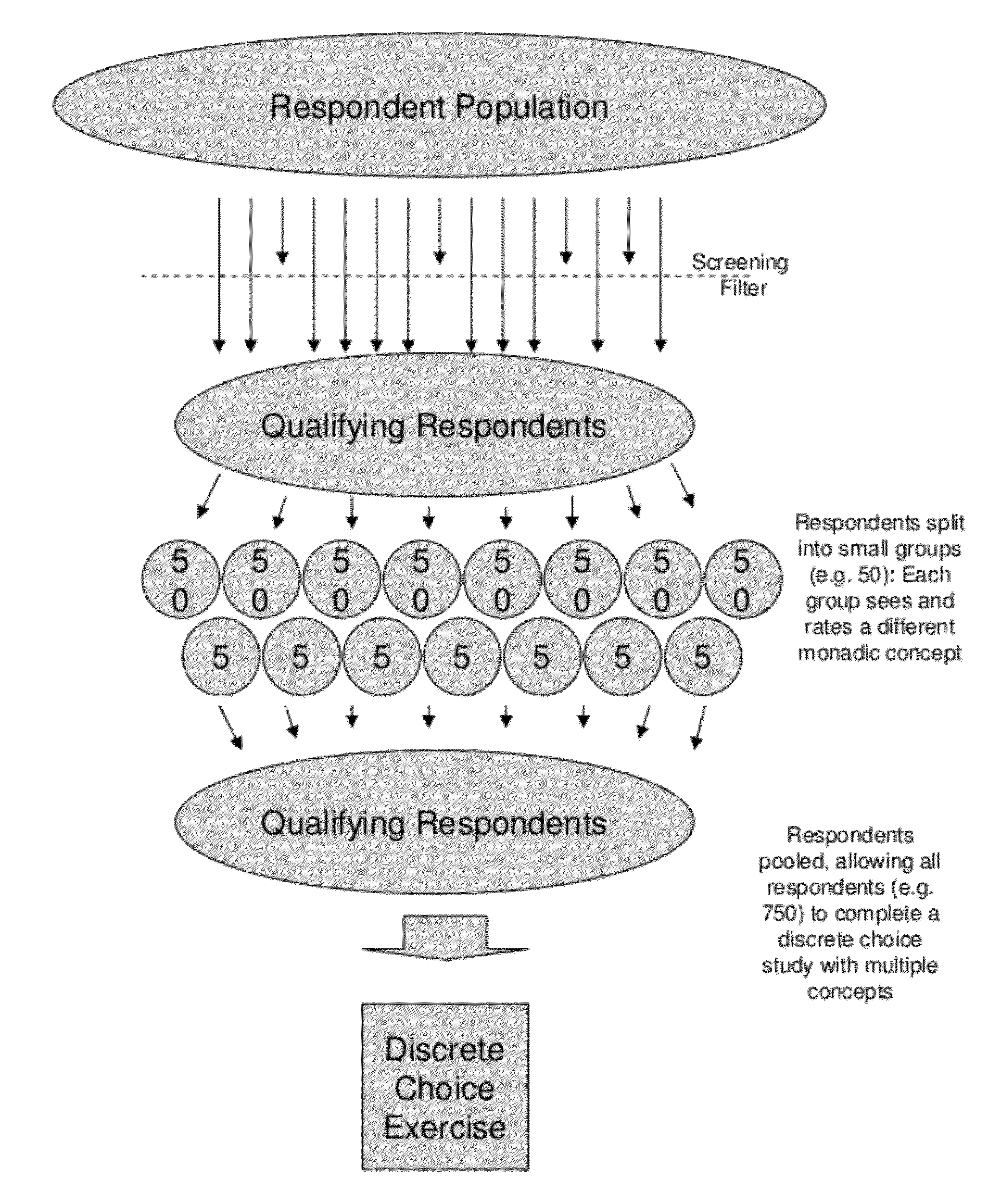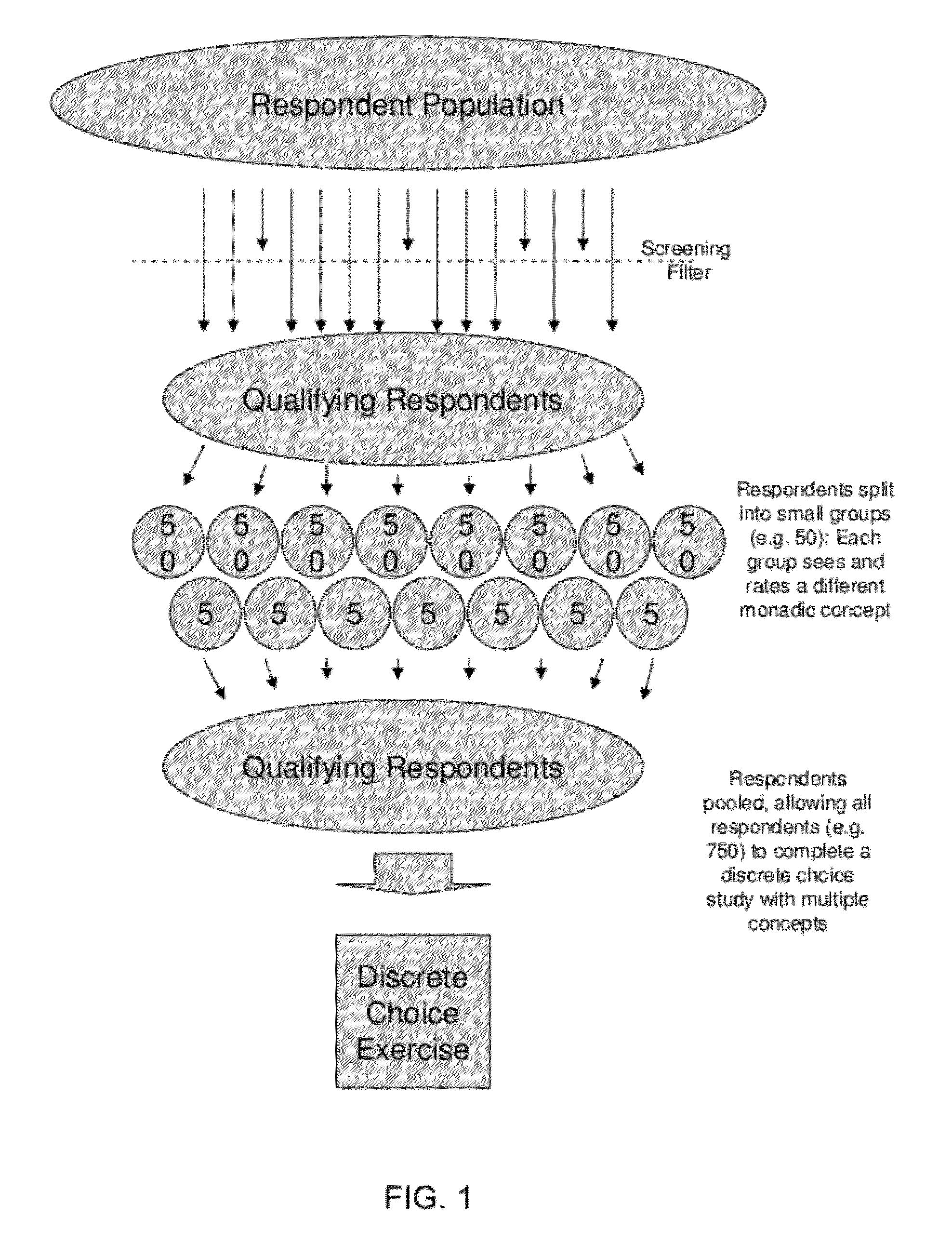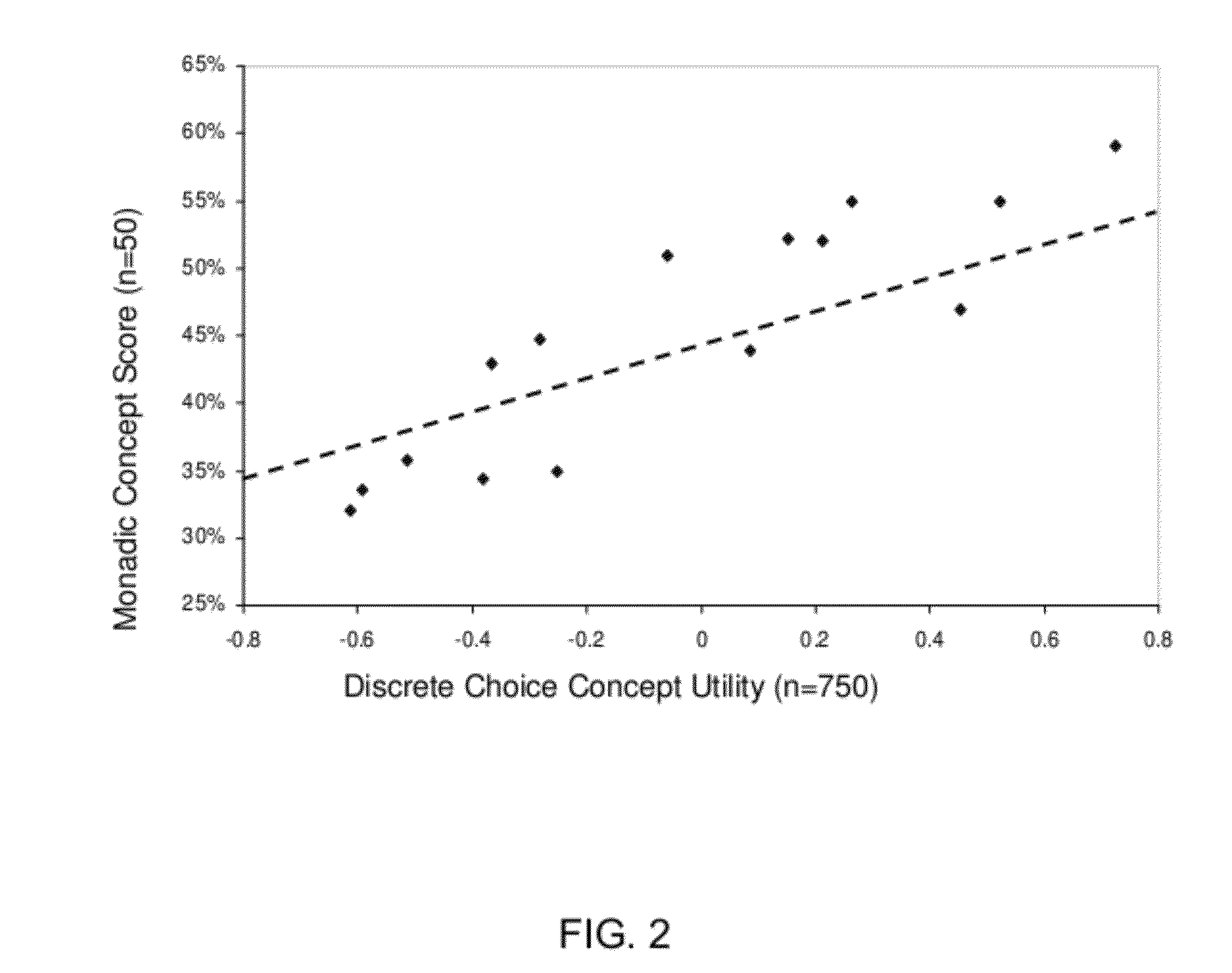Assessing demand for products and services
a demand assessment and product technology, applied in the field of market research and prototype development, can solve the problems of not incorporating multiple types of data, nor multiple dimensions within the same model, and achieve the effects of improving model precision, facilitating the characterization of these preference based groups, and improving the prediction of the in-market performance of products
- Summary
- Abstract
- Description
- Claims
- Application Information
AI Technical Summary
Benefits of technology
Problems solved by technology
Method used
Image
Examples
Embodiment Construction
[0024]FIG. 1 illustrates one embodiment of a process for gathering data related to respondents' reactions to concepts being tested. An initial population is identified and, in some cases, filtered to eliminated individuals that may be biased, outside the preferred demographic, or for other reasons, resulting in a pool of qualified respondents. The respondents are then split into small groups (e.g., 50 individuals per group), and each group sees and rates a single monadic concept. In one embodiment, each group sees a different concept, whereas in other implementations the same concept may be seen by more than one group. In other embodiments, each individual may see a random or rotating subset of the concepts. After viewing and scoring one or more concepts, respondents are then pooled and all (or some large percentage) complete a discrete choice study that includes multiple concepts.
[0025]The scores from each of the two exercises are then calibrated across individuals and concepts, as...
PUM
 Login to View More
Login to View More Abstract
Description
Claims
Application Information
 Login to View More
Login to View More - R&D
- Intellectual Property
- Life Sciences
- Materials
- Tech Scout
- Unparalleled Data Quality
- Higher Quality Content
- 60% Fewer Hallucinations
Browse by: Latest US Patents, China's latest patents, Technical Efficacy Thesaurus, Application Domain, Technology Topic, Popular Technical Reports.
© 2025 PatSnap. All rights reserved.Legal|Privacy policy|Modern Slavery Act Transparency Statement|Sitemap|About US| Contact US: help@patsnap.com



